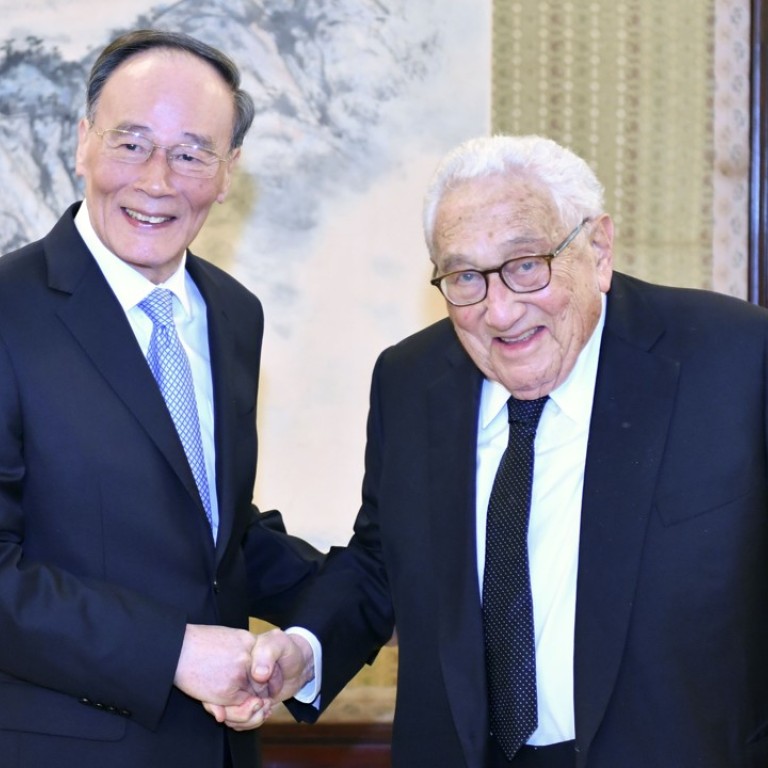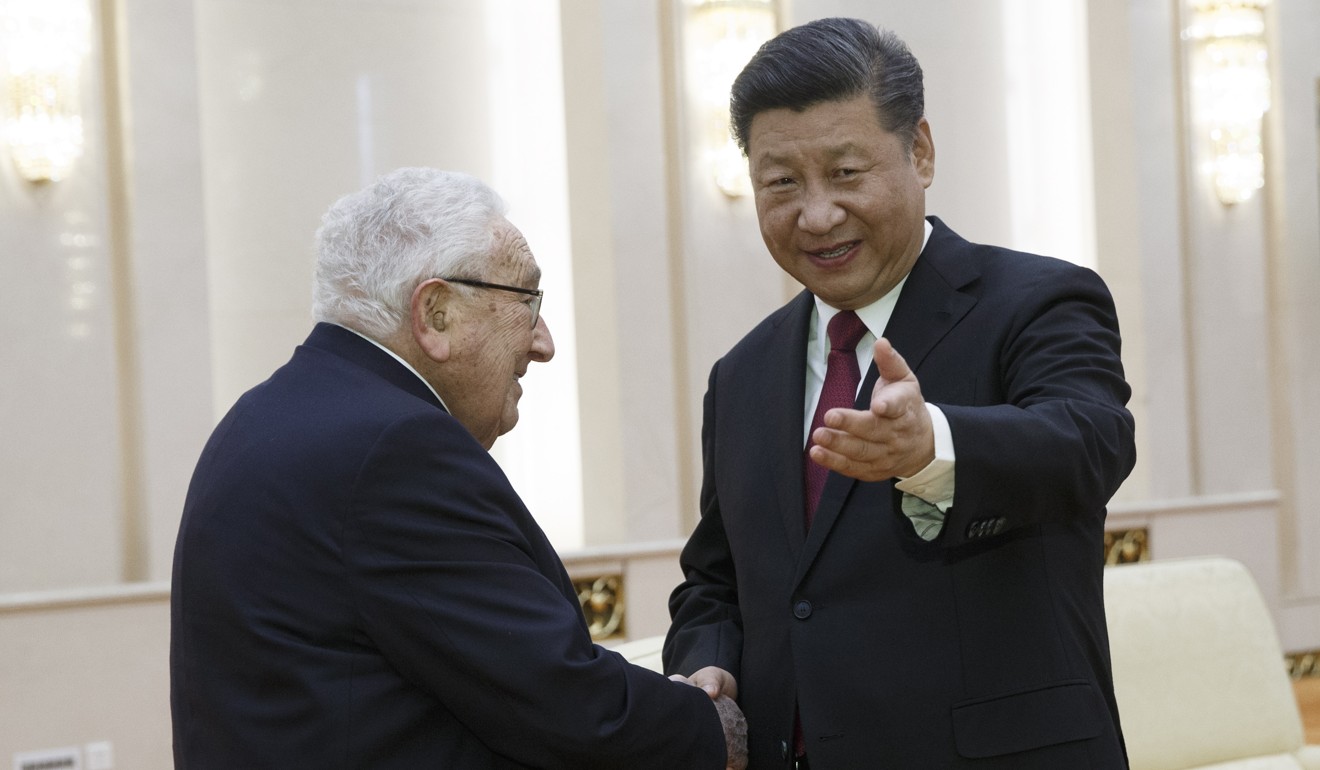
US-China trade war: ‘mutual respect’ key to resolution, Liu He tells Henry Kissinger
- Visiting diplomat also meets Chinese Vice-President Wang Qishan for second time in less than a week
- But observers question relevance of Kissinger in the Donald Trump era
China and the US should seek to resolve their economic disputes on the principles of “mutual respect, equality and mutual benefit”, Vice-Premier Liu He, China’s top negotiator on trade, told visiting former US secretary of state Henry Kissinger in Beijing on Saturday.
Liu was the latest in a string of senior Chinese officials, including President Xi Jinping, to meet the 95-year-old diplomat during his visit to the country.
“The two sides should properly solve issues in areas including the economy and trade under the guidance of the consensus reached by the two presidents,” Xinhua quoted Liu as saying. And the resolution should be based “on the principle of mutual respect, equality and mutual benefit”, he said.
China and US need to ‘accurately assess’ strategic aims, Xi Jinping tells Henry Kissinger
Kissinger and Xi met on Thursday in Beijing, when the Chinese leader said that Beijing and Washington should “accurately assess” each other’s strategic intentions amid rising trade tensions.
Also on Saturday, the visiting statesman met China’s Vice-President Wang Qishan, just days after the pair spoke together on Tuesday at the Bloomberg New Economy Forum in Singapore.
Observers said Beijing was hoping that the visit by Kissinger, who brokered the first ever US-China summit between Richard Nixon and Mao Zedong in 1972, would help pave the way to successful talks between Xi and US President Donald Trump on the sidelines of the G20 summit in Argentina at the end of the month.
“The Chinese leaders believe they must find someone reliable to talk with and convey a message to Trump,” said Shen Dingli, an expert in American studies at Fudan University in Shanghai.
Trump to host dinner with Xi at G20 summit, but will there be a deal?
It was of particular note that Wang and Kissinger met twice in such a short period of time, he said.
“We don’t know what happened behind the scenes, but there must be something going on, otherwise there wouldn’t have been the need for a second meeting so soon.”
Wang’s presence at the Singapore forum, organised by American tycoon Michael Bloomberg, at which he also gave the keynote speech, was seen by many as a sign that Beijing was ready to reopen talks with Washington on finding a solution to the trade war.

Both Liu and Wang praised Kissinger’s historical contributions to US-China relations.
Kissinger told Liu that communication and mutual understanding between the two countries should be enhanced, and told Wang that the problems between the two could be solved only through dialogue and consultation on an equal footing, according to the Xinhua report.
“US-China relations are so important that they matter to the world’s peace and prosperity,” Kissinger said.
But Yuan Zheng, an expert on China-US affairs at the Chinese Academy of Social Sciences, doubted how much use Kissinger’s visit to China would be in achieving that goal.
“As Kissinger is not at the core of Trump’s power circle – and he’s also a controversial figure because his consultancy firm makes money from China – I don’t think Kissinger’s trip this time will make a significant difference to relations,” he said.

